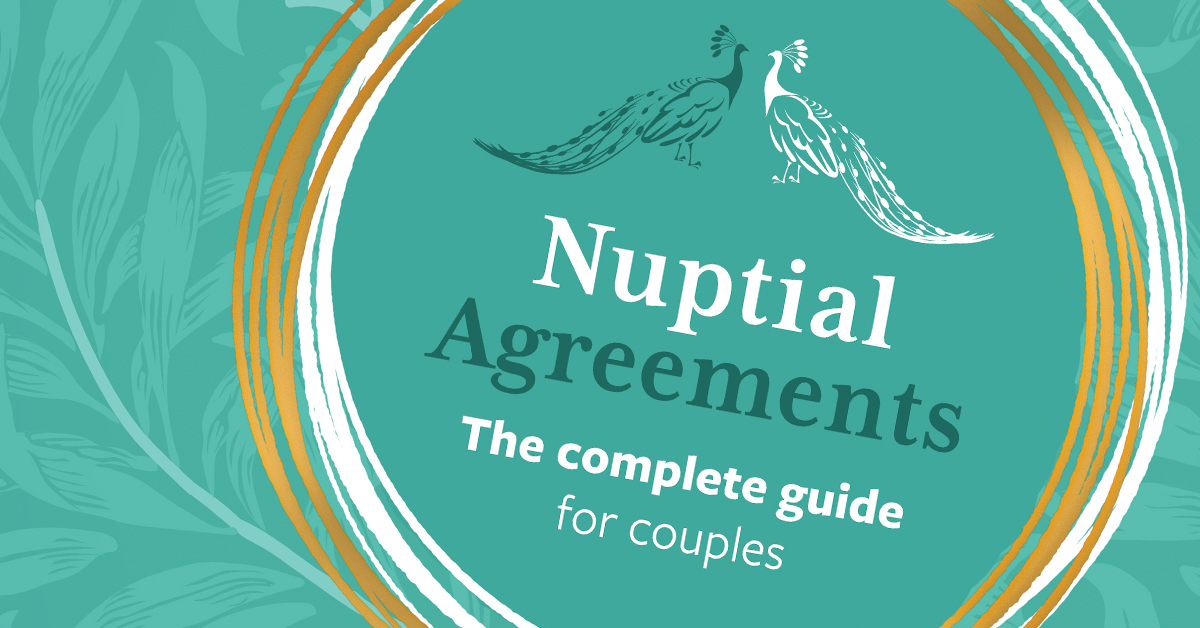Family - Prenups
Below are some common questions we have received from clients concerned about the impact of COVID-19. If you have a question that has not been answered below, please submit your question here, and we will respond to your query directly.
Question: We have a prenup and our wedding has been cancelled or postponed – will this affect our prenup?
Answer: Check your prenup: most will give a window of between 6 and 12 months following the planned wedding date, during which the prenup will still be valid. This is because, even in happier times weddings are sometimes postponed. If you are concerned, please contact us for advice.
Question: We don’t yet have a prenup. Our wedding has been postponed – should we delay getting our prenup?
Answer: It is strongly recommended that prenups should be signed in good time before the wedding. In our experience, the sooner they are prepared the better, as there are so many other things to think about in the run-up to a wedding. If your wedding has been postponed, this is an ideal time to start work on a prenup.
Question: We are self-isolating in separate households. Our prenup has been agreed but not signed – is this a problem?
Answer: Prenups do not usually require both parties to sign at the same time and there is no issue with each spouse signing different counterpart copies of the same agreement. However, they often do need the parties’ signatures to be witnessed. However, this should not pose an insurmountable problem: your witness may be able to witness your signature by Facetime, or your lawyers may agree that the prenup can be signed later, provided the content is agreed.
Question: We are in the process of negotiating a nuptial agreement and we have exchanged financial information. However, the COVID-19 pandemic means our assets have reduced in value and our income is less secure. Do we need to update our financial information?
Answer: For a nuptial agreement to be considered fair and upheld by the court, each party should have a good understanding of the other’s financial position. If COVID-19 has materially affected the value your assets or your job security, then you should certainly make the other party aware of the fact. Even if your financial circumstances have not changed significantly since you exchanged financial information, it is good practice to formally confirm that this is the case to your spouse in the event of a delay in signing your agreement or your wedding taking place, in the interests of clarity and transparency.
Question: If our assets have declined in value, should that affect the provision that is made in our nuptial agreement?
Answer: For a nuptial agreement to be upheld by the court, it should make fair provision for both parties in the event they divorce. What is considered fair will depend on the couple’s individual circumstances at the time of the divorce. Whilst it may appear that a reduction in the parties’ asset values before the marriage should result in lower provision, it’s important to remember that the court will be testing fairness at the point of divorce. Most economic commentators expect the effects of the COVID-19 crisis to be fairly short-term, and most marriages last many years (if not a lifetime). A decline in asset values is therefore not necessarily a reason to reduce the level of provision in a nuptial agreement. However, each case is different so contact your lawyer for advice.
Commercial Concerns
The effects of the COVID-19 pandemic are being felt across sectors and industries, with many businesses unaware of how to continue trading under evolving guidelines and regulations, and how changing legal requirements affect them. These are some of the frequently asked questions from our clients concerning their business and commercial matters and should you have additional queries, we welcome you to submit them to us.



